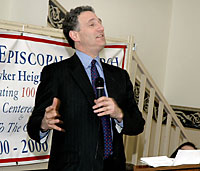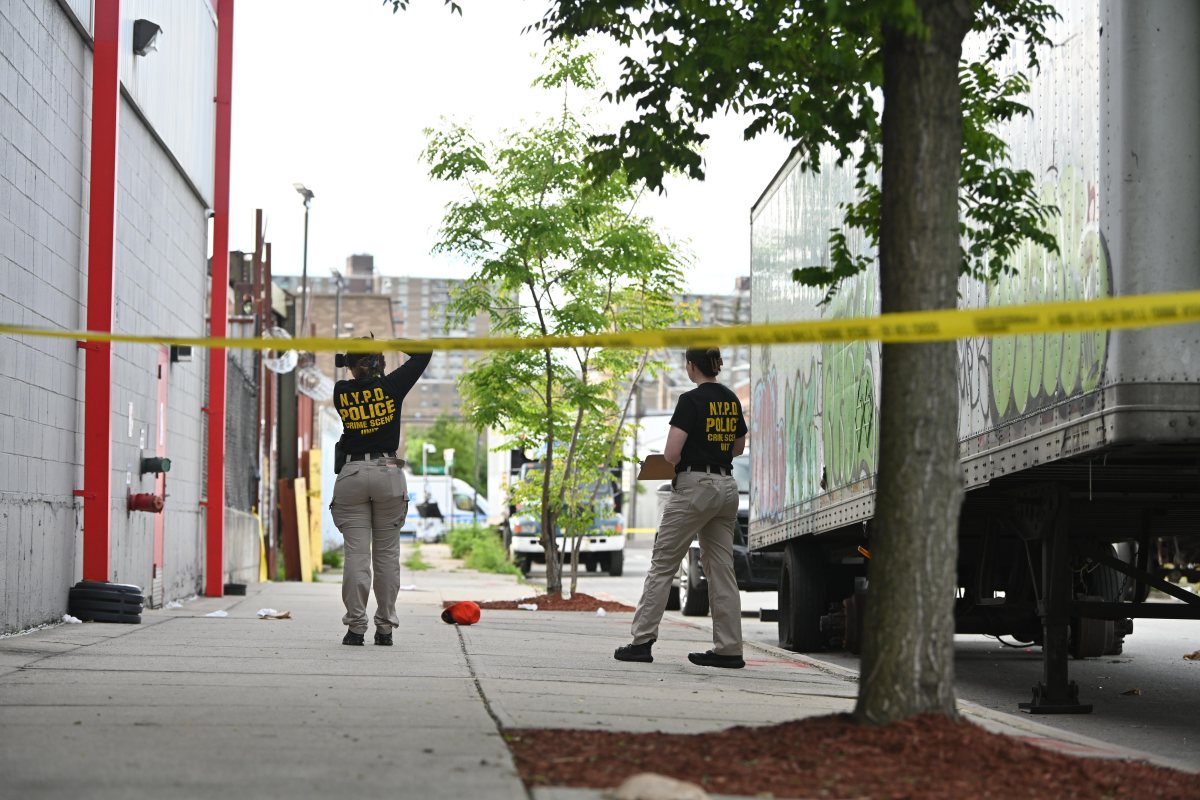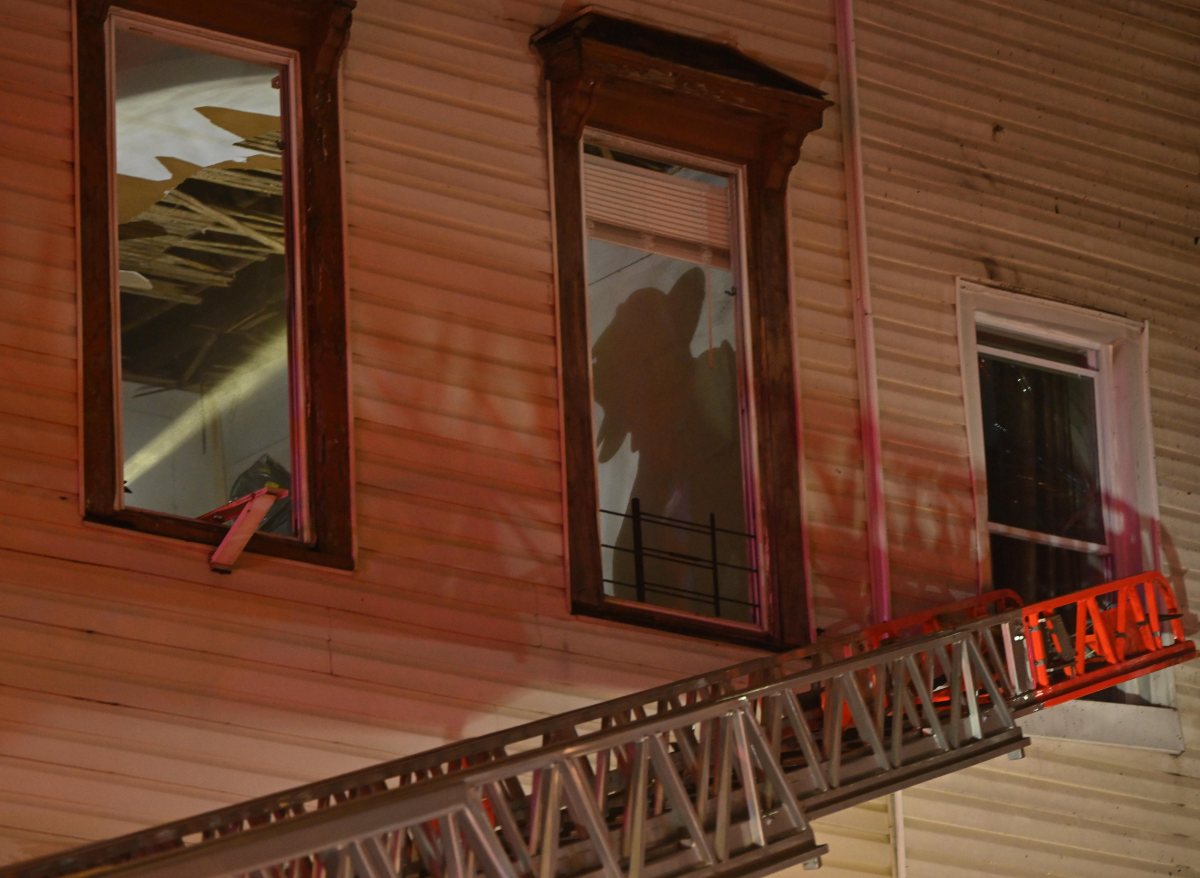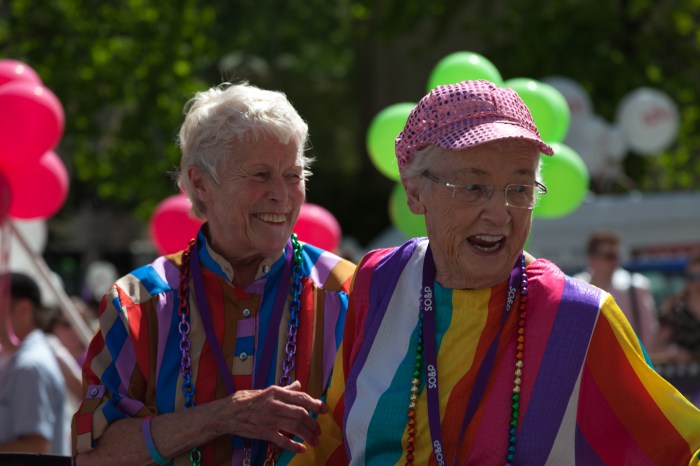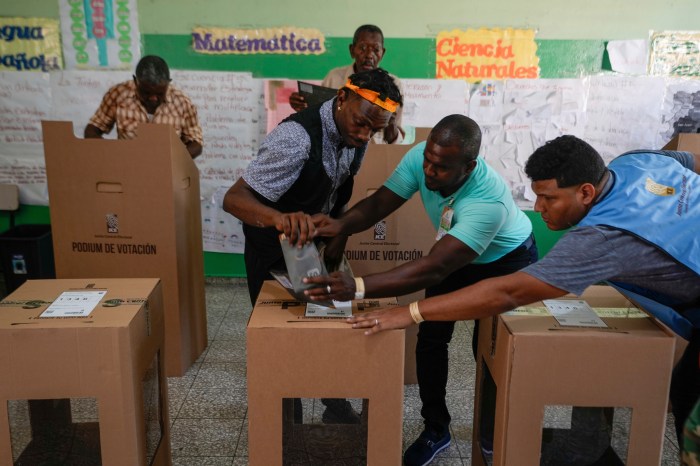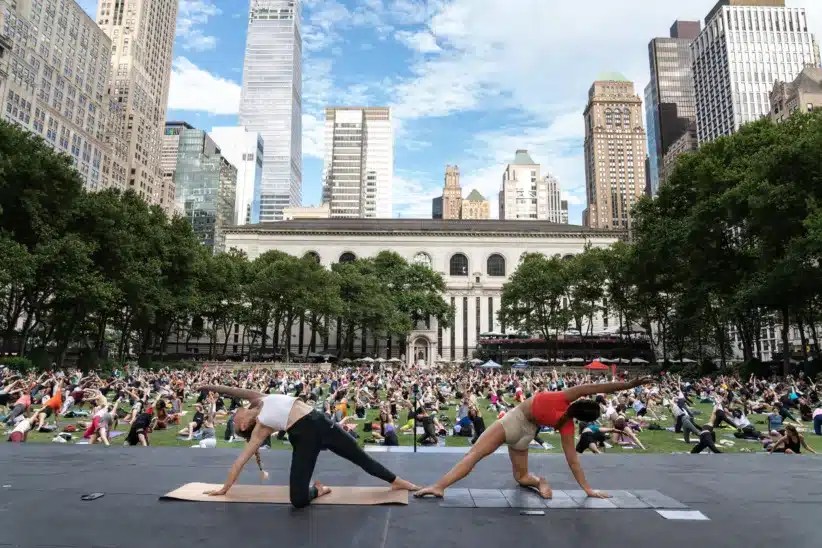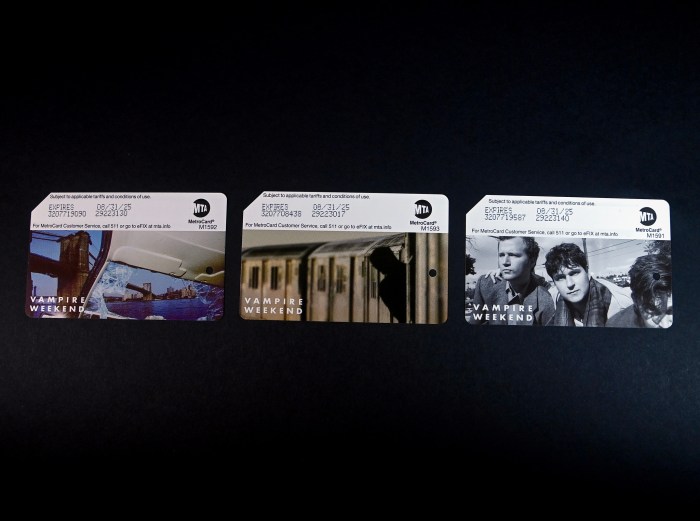Deputy Mayor for Economic Development Daniel Doctoroff said this week
that a zoning plan now being tailored for Dyker Heights could come before
the public as early as this fall.
The Dyker rezoning, Doctoroff said, would likely include 170 blocks.
While scant, Doctoroff’s remarks, during an April 26 Bay Ridge Community
Council meeting, offer the most detailed glimpse into the zoning proposal
since Mayor Michael Bloomberg threw his own support behind the project
in October.
“As we speak, the Department of City Planning is looking at the area,”
said Doctoroff, best known these days for leading the city’s 2012
Olympics bid. “What we’ve come to learn is that one size across
this city really does not fit all.”
Kristin Guild, of the Department of City Planning’s Brooklyn office,
who accompanied Doctoroff to the meeting at St. Philip’s Episcopal
Church Tuesday night, confirmed the details and added that a handful of
planning technicians began evaluating the neighborhood last month. Among
other matters, the planners are studying “transit corridors and building
form,” she said.
“It’s very preliminary at this point,” said Guild. “But,
yes, it’s been on our work program for a long time.”
If all goes as planned, said Guild, the rezoning plan could be certified
by September and start its review under the city’s Uniform Land Use
Review Procedure (ULURP) with hearings before Community Board 10. The
seven-month review process calls for hearings before and recommendations
by CB10, Borough President Marty Markowitz, the City Planning Commission
and the City Council.
As plans to rezone 249 blocks of Bay Ridge were approved by the City Council
last month, elected officials in southwest Brooklyn, most notably Councilman
Vincent Gentile, called on the Department of City Planning to begin anew
in Dyker Heights. The effort, say Gentile and members of CB10, is one
that they hope will protect one- and two- family homes from overactive
condominium development.
Dyker Heights is bounded by Seventh Avenue to the west, 65th Street to
the north, 14th Avenue to the east and the Belt Parkway to the south.
Besides zoning matters, Doctoroff touted the city’s continued drop
in crime since Bloomberg took office in 2002 while also emphasizing that
overall crime in Bay Ridge and Dyker Heights has dropped by 12 percent
since last year. While still impressive, CompStat records provided by
the NYPD indicate that crime is down by only 8 percent, with burglaries
seeing a slight 3-percent rise in those neighborhoods.
After speaking briefly to the crowd of more than 100 Dyker Heights and
Bay Ridge residents gathered at the church on 80th Street and 10th Avenue,
as well as several dozen police officers from the 68th Police Precinct,
a round of questions revealed that Doctoroff was not particularly well-versed
in the issues confronting this area of the city.
Asked whether ferry service would one day return to the 69th Street Pier,
where water transportation vanished after the pier had to be rebuilt when
sea organisms chewed it beyond repair in 1997, Doctoroff refused to speak
specifically about that proposal. He said, however, that while the Bloomberg
administration has its sights set on reviving water-bound transportation,
the challenge was in creating a business model that was financially prudent.
“You charge 5 cents, it loses money,” said Doctoroff. “You
charge $2 it loses money. If you charge $5 it loses money. And that’s
what we need to figure out.”
Last month, Gentile and Councilman David Yassky, chairman of the waterfronts
committee, revealed that money earmarked for ferry service at 69th Street
as well as renovation of a dock at 58th Street were being withheld by
the city Department of Transportation.
Doctoroff also said he was open to meeting with members of the Gowanus
Stakeholders Group, the organization that has been studying alternatives
to the ailing Gowanus Expressway. Michael Cairl, chairman of the group,
which has designed a series of plans that would see the expressway demolished
and re-imagined underground, said that Doctoroff’s ear would be a
boon to the plan.
When a reporter asked Doctoroff for his opinion on a tunnel replacing
the expressway, the deputy mayor first acknowledged his own ignorance
of the plan.
Then he said, “It should have been done when they built it the first
time.”


